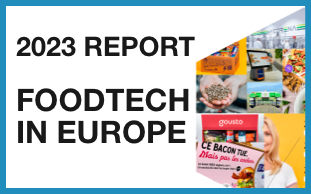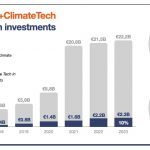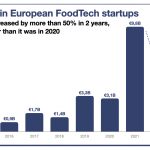Last week, one startup, Alpha foods raised $28m its frozen foods. This is only one of many big round of financing in frozen foods startups. Is this becoming a trend ? And can expect to see more of it? Indeed, while entrepreneurs are mostly betting on fresh produce and on-demand fresh meals, this concentration of entrepreneurs in frozen is intriguing.
Frozen foods?
While frozen foods had a somewhat bad image only a few years ago, it seems this issue is getting solved. Many startups are now betting on frozen due to its:
- Convenience: compared to heat-and-eat services that deliver to your door ready fresh and ready to eat meals, frozen foods enable you to make bulk orders (fewer deliveries = small delivery fees)
- Less (and often none) additives and better nutrition. Done right, flash freezing can preserve all the nutritional values of ingredients. It also enables the producer to avoid the need for additives needed for long shelf-life products.
What startups bring here
This new kind of brands which deliver to your door high end frozen ready to eat products differentiate themselves both by their healthy offering and their communication.
Ipsa provisions, a New-York based startup goes a bit further with a seasonal menu of frozen vegetarian cooked meals. It works pretty much as the better known “order once a week fresh meals” such as Freshly but with two cues: frozen and multiple portion meals. Indeed, frozen enable the startup to deliver you “big plates” which can be used either for a family dinner or separately by singles.
Other startups don’t go so far as trying to be a substitute for your everyday meals. However, they also have their différenciations from traditional frozen food brands. Strong Roots (a UK based startup which raised $18m in 2019 for its vegetarian products) and Alpha foods go for vegetarian food and Caulipower base all its offerings and cauliflower, an interesting gluten-free, keto and paleo friendly vegetable that is seen as one of the top super ingredients.
 Why it matters?
Why it matters?
Is this a new food startup fad or something relevant to consider? I would go for the last answer:
- Even if it’s only empirical, it’s always a good sign for a trend to see startups develop in both sides of the Atlantic;
- The need for more qualitative vegetarian products is rising as are the concerns about plant-based alternatives such as Beyond Meat and Impossible foods long list of ingredients and high level processing.
- Delivery costs are high and may get higher for fresh foods in the incoming years. And one-hour delivery only targets big cities. How do we provide high quality food to the suburbs and small towns? Frozen may be an answer to both issues with bulk deliveries and a broader reach.
Finally, these new brands have the communication benefit of a newcomer to this market, without the history of major food brands. We can only expect to see more of these startups emerging in continental in Europe where they are still quite absent.







